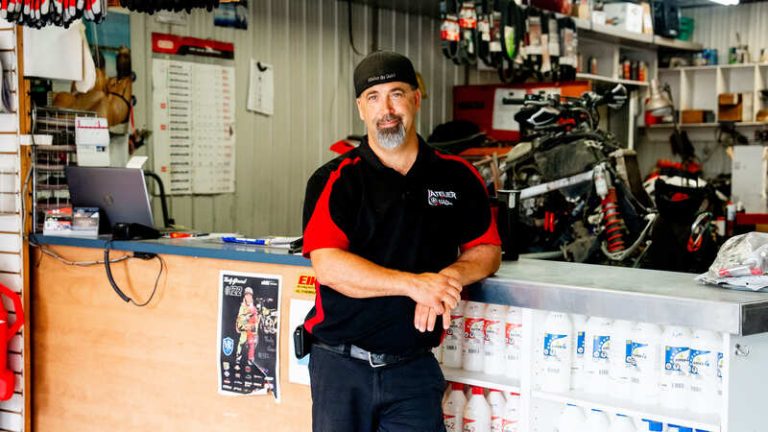More and more entrepreneurs are turning to social entrepreneurshipwho want to build companies that work for a better world. positive impact on society and the environment. This form of entrepreneurship merges entrepreneurial values with social or environmental missions. environmental well-defined.
Understanding social entrepreneurship
L'social entrepreneurship is based on the ambition to solve social and environmental problems through innovative business solutions. Social entrepreneurs are committed to finding sustainable, cost-effective ways to meet society's needs, while creating a positive long-term impact. They use entrepreneurial principles to build viable businesses that combine profitability and social responsibility.

A fundamental aspect of social entrepreneurship is the balance between the quest for social impact and economic viability. The social entrepreneurs aspire to create autonomous businesses that do not depend not just donations or subsidies, but derive their income from the sale of products or services, enabling them to sustain their social impact.
Identify a social or environmental problem
The first step in setting up a social enterprise is to target a specific social or environmental problem. This can involve :
- poverty,
- education,
- health,
- l’accès aux resources,
- renewable energies,
- preserving the environment
- or any other societal challenge.
Social entrepreneurs need to conduct an in-depth analysis to understand the root causes of the problem and find effective solutions.
For example, a contractor social could note the lack of access to education in rural areas and decide to set up a company offering affordable educational technologies. Or it could react to the harmful impacts of the pollution by setting up a plastic recycling to reduce plastic waste.
Designing a sustainable business model
To succeed in social entrepreneurship, it is crucial to design a model sustainable business, combining profitability with a positive impact on society. Social entrepreneurs can adopt a variety of models, including profit-making companies with a social missioncompanies dual vocation (profit and social impact)cooperatives or organizations non-profit using business models to finance their social mission.
To develop a sustainable business model, social entrepreneurs need to identify their target audience and define how their product or service will meet their needs. They must also analyze the market and the competition to find their place. What's more, they have to establish a business plan resources required, potential sources of funding and the current situation. partnerships strategic.

Measuring and communicating social impact
Measuring social impact is essential in social entrepreneurship. Social entrepreneurs need to put in place indicators to assess the impact of their enterprise on society and the environment. This can include the number of people beneficiariesthe savings energy savingscarbon emission reductions, or any other relevant measure. This evaluation makes them responsible and accountable for their work.
It's also crucial for social entrepreneurs to communicate transparently and authentically about their social impact. They can do this through reports regular testimonials of beneficiaries certifications or social labels, or via the media and social networks. This communication This is an effective way of engaging stakeholders and inspiring other entrepreneurs, fostering wider positive change in society.
Examples of social entrepreneurship
There are many examples of successful social enterprises. In the energy sector, for example, some social enterprises are developing clean energy solutions for rural communitiesreducing their dependence on fossil fuels.
In the foodcompanies are specializing in the production and distribution of organic and fair trade food productspromoting sustainable and ethical practices. These examples illustrate how social entrepreneurship can have a positive impact while being economically viable.
L'Esplanade, located at 914 Notre-Dame Street West in Montrealis a place dedicated to entrepreneurs who place a premium on impact in their business model. The ecosystem supports entrepreneurs in 3 poles: Pôle environment and climate change, to preserve the environment and combat climate change in Africa. QuebecPôle santé, in partnership with the CHUM, the Ministère de la Santé et des Services sociaux and several CIUSSS in Quebec, (mental health, home healthcare, improving patients' living conditions), and Pôle systèmes alimentaires for urban agriculture and fair-trade procurement.
Another example from Quebec, the cooperative, wwwilliam.coop embodies the values of solidarity and social responsibility by offering a practical and cost-effective solution for early childhood centers.
This purchasing cooperative on line has been specially designed to meet the needs of the thousands of childcare centers in Quebec. With 200 members already, wwwilliam.coop plays a crucial role in helping these centers optimize their spending while offering significant benefits. By using wwwilliam.coop, childcare centers can can not only simplify their purchasingwwwilliam.coop is a perfect example of how social entrepreneurship can provide innovative and concrete solutions to social challenges, while promoting economic development. As a committed player in Quebec's social fabric, wwwilliam.coop embodies the spirit of collaboration and positive impact.
However, social entrepreneurship remains a major challenge! Social entrepreneurs need to be creative in finding alternative sources of financing, such as grantsthe investments or the financing participatory.
SADC Achigan-Montcalm: Who are we?
To help you manage your business efficiently and exploit its full potential, the SADC offers you :
- an array of management consulting
- solutions corporate financing
- and a support for collective projects.

We believed in their project and they put their trust in us.
SADC can help you develop your business. Call on our team to bring your entrepreneurial projects to fruition.







